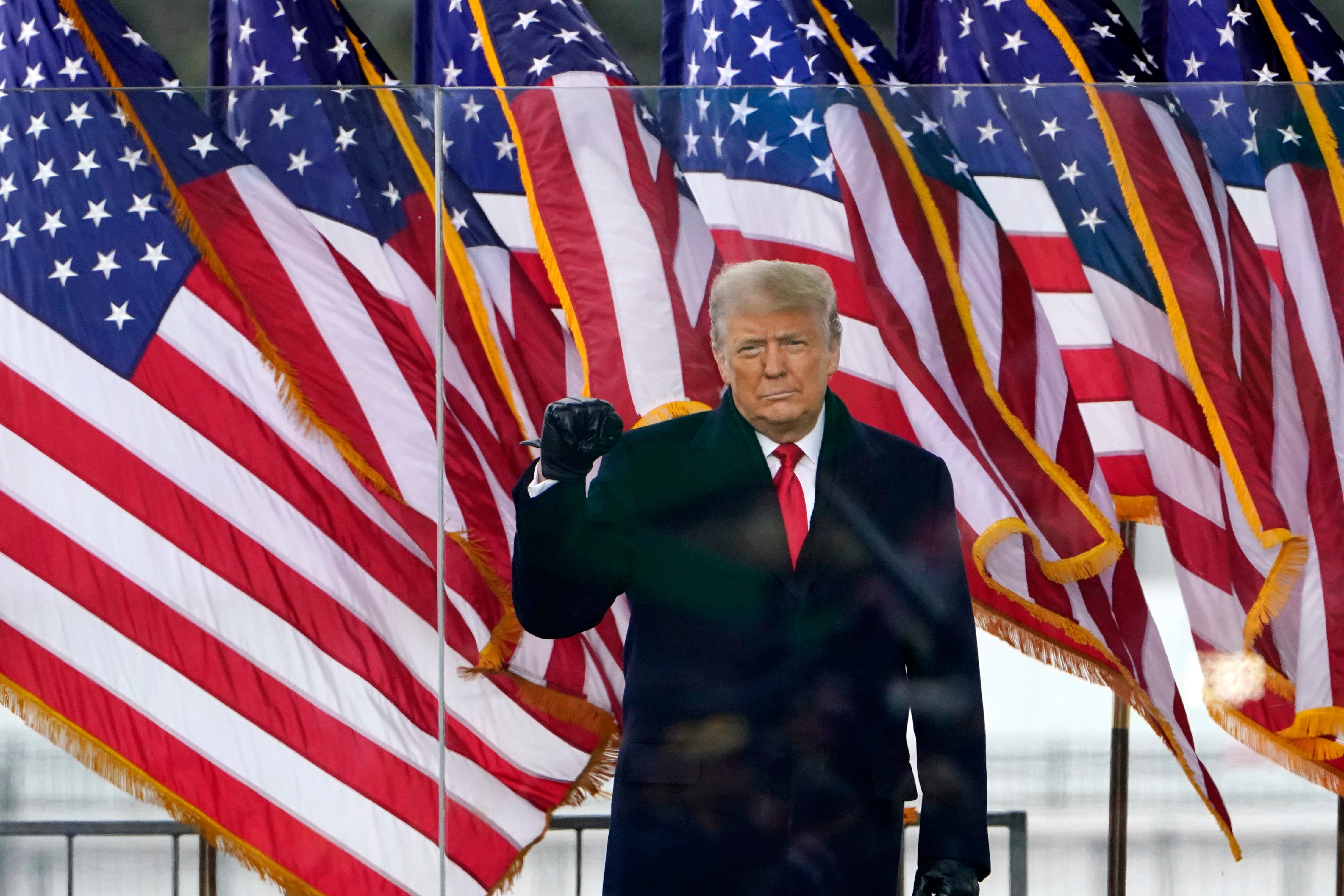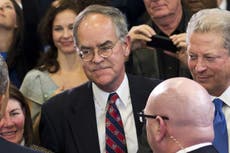Those politicians who told the truth about Trump deserve our praise
In a way, the debate about how to deal with the current president echoes the old foreign policy argument between engagement and isolation, writes John Rentoul


When Donald Trump was elected, I was seized by two contradictory impulses. One was to respect the result of the election, which he won fair and square under the rules – and to try to understand, explain and comment upon the reasons for his victory.
The other was, I am afraid, an unprofessional desire never to write about him, in the childlike belief that if I didn’t pay any attention to him, he wouldn’t really be president of the wonderful country which I had just visited four days earlier.
That was my personal version of the dilemma faced by politicians around the world. Theresa May, who had just become prime minister (a lot has happened in four years), handled the challenge with dignity. She agreed with the conventional view that it is in the interest of the UK to maintain good relations with whoever is in power in the US, and she tried to make it work without fawning. It involved allowing him to hold her hand at the White House, and a couple of excruciating joint press conferences in Britain.
At the first, in 2018, President Trump said in front of her, “Boris Johnson, I think, would be a great prime minister.” As transparent as glass, his next two sentences were: “He’s been very nice to me. He’s been saying very good things about me as president.”
And she showed some steel in responding to his comment that “immigration has been very bad for Europe; it’s changing the culture; it’s very negative”, by saying: “The UK has a proud history of welcoming people who are fleeing persecution. Over the years, immigration has been good for the UK.”
Johnson, on the other hand, proved to be Trump’s flexible friend. When Johnson was mayor of liberal London, the US president said: “We have places in London and other places that are so radicalised that the police are afraid for their own lives.” Johnson responded with brio: “The only reason I wouldn’t go to some parts of New York is the real risk of meeting Donald Trump.”
But Johnson himself was radicalised by his experience of leading the Vote Leave campaign the next year, when he relished Trump’s support for Brexit.
Meanwhile, Johnson’s deputy in Vote Leave, Michael Gove, cast into the outer darkness by May, occupied himself as a backbench Tory MP by, among other things, interviewing Trump in Trump Tower for The Times, where Gove had previously been assistant editor. This was four days before Trump’s inauguration in January 2017, and it was a great scoop. Gove is a better journalist than I am.
But is he a better politician? The disgrace and the disorder of Trump’s last days in office certainly makes other politicians look better. Not just Theresa May, who stiffly kept her composure, but Sadiq Khan, Johnson’s successor as mayor of London, who kept up his feud with the US president, particularly over Trump’s travel ban, which was aimed at a number of Muslim-majority countries.
Also ending the four years in credit is John Bercow, the speaker of the House of Commons, who blocked President Trump from addressing a joint meeting of both houses of parliament when he visited the UK in 2019.
That was the last time May had to deal with Trump, as she was on her way out. At another awkward joint press conference, she said: “Like prime ministers and presidents before us, and no doubt those that will come after – we can also differ sometimes on how to confront the challenges we face.” In other words: I’m off, and it won’t be long before you are too, I hope.
That was the time when Jeremy Corbyn, still leader of the opposition, asked to meet the president, who said no. Corbyn thus proved that even those who most fiercely condemn Trumpian politics sometimes recognise the pragmatic argument for engaging with authoritarian leaders.
In a way, the debate about how to deal with Trump echoes the old argument between engagement and isolation as the best way to deal with rogue regimes. Boycotting the Trump administration altogether was never a realistic possibility, but those British politicians who used the longest possible spoons when supping with him have been vindicated by his incitement to the mob storming the Capitol.
Mitt Romney, the Republican candidate defeated by Barack Obama in 2012, and who used to be a hate-figure of the people who now hate Trump even more, spoke in the Senate on Wednesday night: “The best way we can show respect to the voters who are upset is by telling them the truth.”
Sadiq Khan, John Bercow and even Theresa May, in her own way, respected the voters of America by telling them the truth all along, and they should be praised for it.
Join our commenting forum
Join thought-provoking conversations, follow other Independent readers and see their replies
Comments





Bookmark popover
Removed from bookmarks